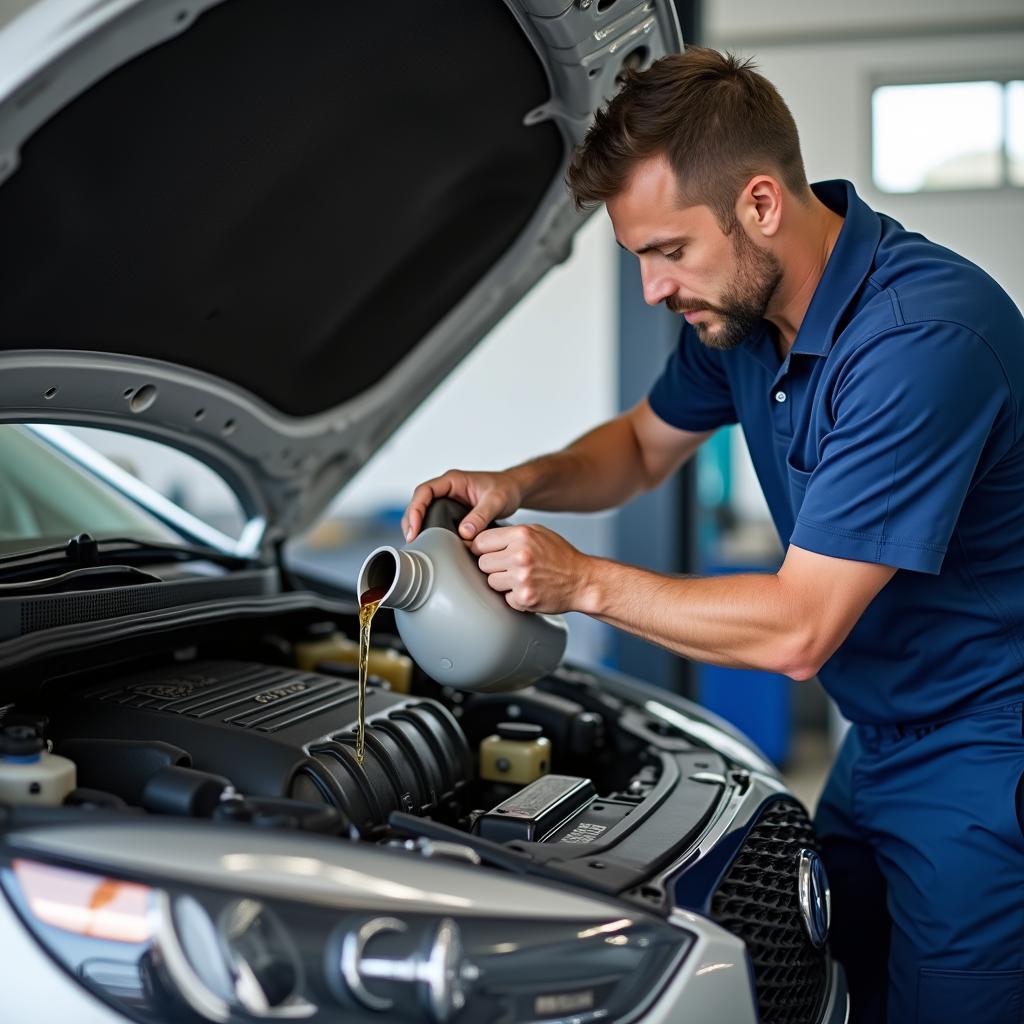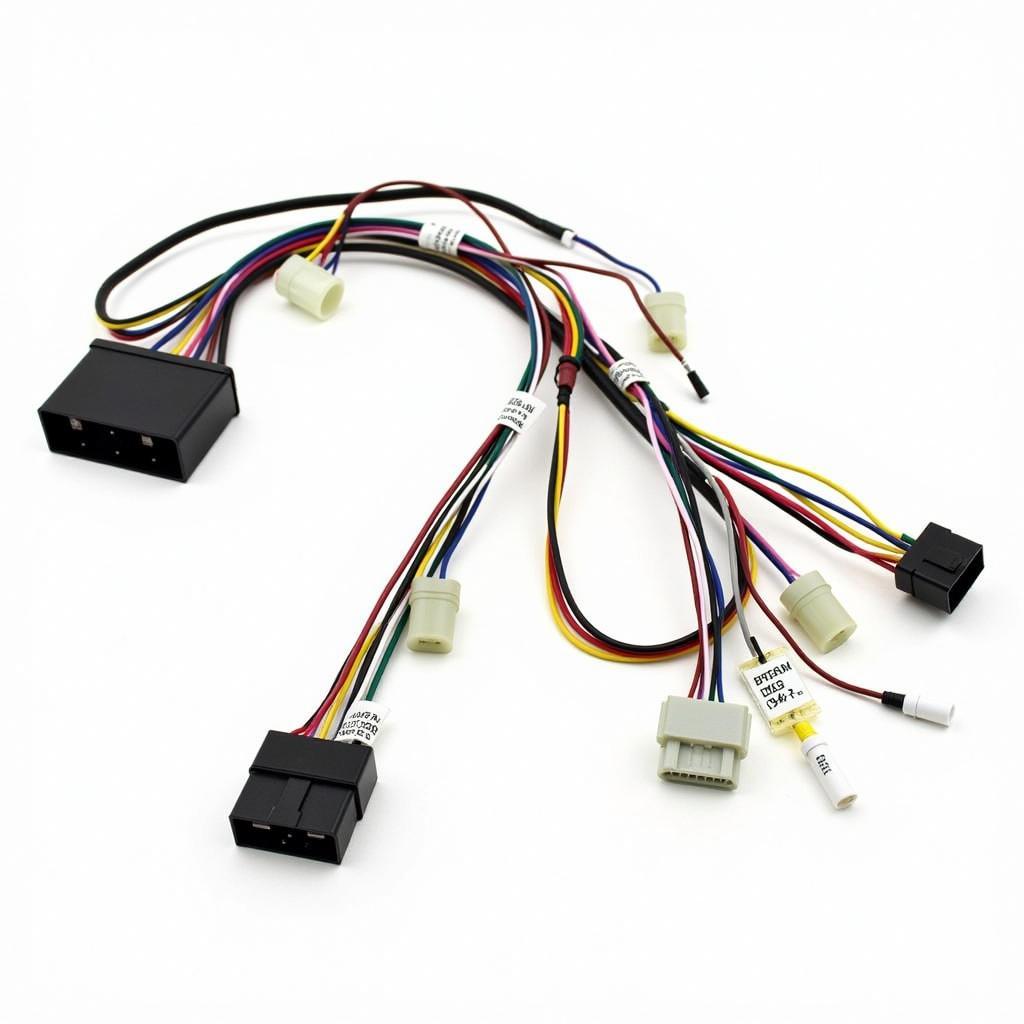Keeping your car in top shape requires regular maintenance and timely repairs. Whether you’re a car owner, a mechanic, or running a repair shop, understanding the ins and outs of car maintenance is crucial. This comprehensive guide will equip you with essential knowledge and practical tips to keep your vehicle running smoothly for years to come.
The Importance of Regular Car Maintenance
Regular car maintenance is not just about preventing breakdowns, but also about maximizing your vehicle’s performance, extending its lifespan, and ensuring your safety on the road. Neglecting routine maintenance can lead to expensive repairs, reduced fuel efficiency, and compromised safety features.
Essential Car Maintenance Tasks
Here’s a list of essential car maintenance tasks that you should perform regularly:
- Oil Change: One of the most critical maintenance tasks, an oil change removes old, dirty oil and replaces it with fresh oil, ensuring proper engine lubrication. smart car maintenance codes
 Changing oil in a car
Changing oil in a car - Tire Pressure Check: Maintaining proper tire pressure ensures optimal handling, fuel efficiency, and tire longevity.
 Checking tire pressure
Checking tire pressure - Air Filter Replacement: A clean air filter ensures optimal airflow to the engine, improving fuel efficiency and performance.
- Brake Inspection & Repair: Regular brake inspections are crucial for safe driving. Worn brake pads or rotors can lead to reduced stopping power and potential accidents.
- Battery Check: A weak or failing battery can leave you stranded. Regularly check the battery terminals for corrosion and ensure the battery has enough charge.
DIY Car Maintenance Tips for Beginners
Many basic maintenance tasks can be performed by car owners with basic tools and knowledge. Here are a few DIY tips:
- Fluid Checks: Regularly check fluid levels, including coolant, brake fluid, power steering fluid, and windshield washer fluid.
- Light Bulb Replacement: Replace burned-out headlights, taillights, and turn signals promptly for safety.
- Windshield Wiper Blade Replacement: Replace worn or cracked wiper blades for optimal visibility, especially during rainy or snowy conditions.
Common Car Problems & Troubleshooting
Here are some common car problems and their possible causes:
- Engine Misfires: Often caused by faulty spark plugs, ignition wires, or fuel injectors.
- Check Engine Light: This light can indicate a wide range of issues, from a loose gas cap to a more serious engine problem.
- Overheating Engine: Caused by low coolant levels, a faulty thermostat, or a blocked radiator.
- Strange Noises: Rattling, clunking, or screeching noises could indicate issues with the engine, brakes, or suspension.
“Regular maintenance is like preventive medicine for your car. Catching small issues early can prevent major problems and save you money in the long run.” – John Smith, Master Mechanic
When to Take Your Car to a Professional Mechanic
While some maintenance tasks can be tackled by car owners, more complex issues require the expertise of a qualified mechanic. Here are some situations where it’s best to seek professional assistance:
- Major Engine Repairs: Engine rebuilds or replacements require specialized tools and knowledge.
- Transmission Problems: Transmission issues can be complex and require experienced technicians.
- Electrical Problems: Diagnosing and repairing electrical problems can be tricky.
- Air Conditioning Problems: AC systems require specialized tools and refrigerants for repair.
Staying Informed: Resources for Car Owners
Here are some helpful resources for car owners:
- Owner’s Manual: Your owner’s manual is a valuable guide to recommended maintenance schedules and troubleshooting tips.
- Online Forums: Online forums are great for connecting with other car owners and finding advice.
- Mechanic Blogs: Many mechanics share their knowledge and insights through blogs and online articles.
“Staying informed is key to maintaining your car effectively. Use available resources to learn about your vehicle and prevent potential problems.” – Sarah Williams, Certified Mechanic
Conclusion
Regular car maintenance is essential for keeping your vehicle running smoothly, extending its lifespan, and ensuring your safety. By following these tips, you can maintain your car effectively and avoid costly repairs down the road.
For any questions or to schedule an appointment, contact AutoTipPro at +1 (641) 206-8880 or visit us at 500 N St Mary’s St, San Antonio, TX 78205, United States.
FAQs:
- How often should I change my car’s oil? The recommended oil change interval varies depending on your vehicle and driving habits. Check your owner’s manual for specific guidelines.
- What are some warning signs of a dying car battery? Signs include slow engine cranking, dimming headlights, and difficulty starting the car in cold weather.
- What are some common signs of brake problems? Look for signs like squeaking, grinding, or pulsating brakes, a spongy brake pedal, or extended stopping distances.
- How can I improve my car’s fuel efficiency? Maintain proper tire pressure, avoid aggressive driving, and keep your engine tuned up.
- What are some tips for extending the life of my car tires? Rotate your tires regularly, maintain proper tire pressure, and avoid driving on rough roads or potholes.





Leave a Reply